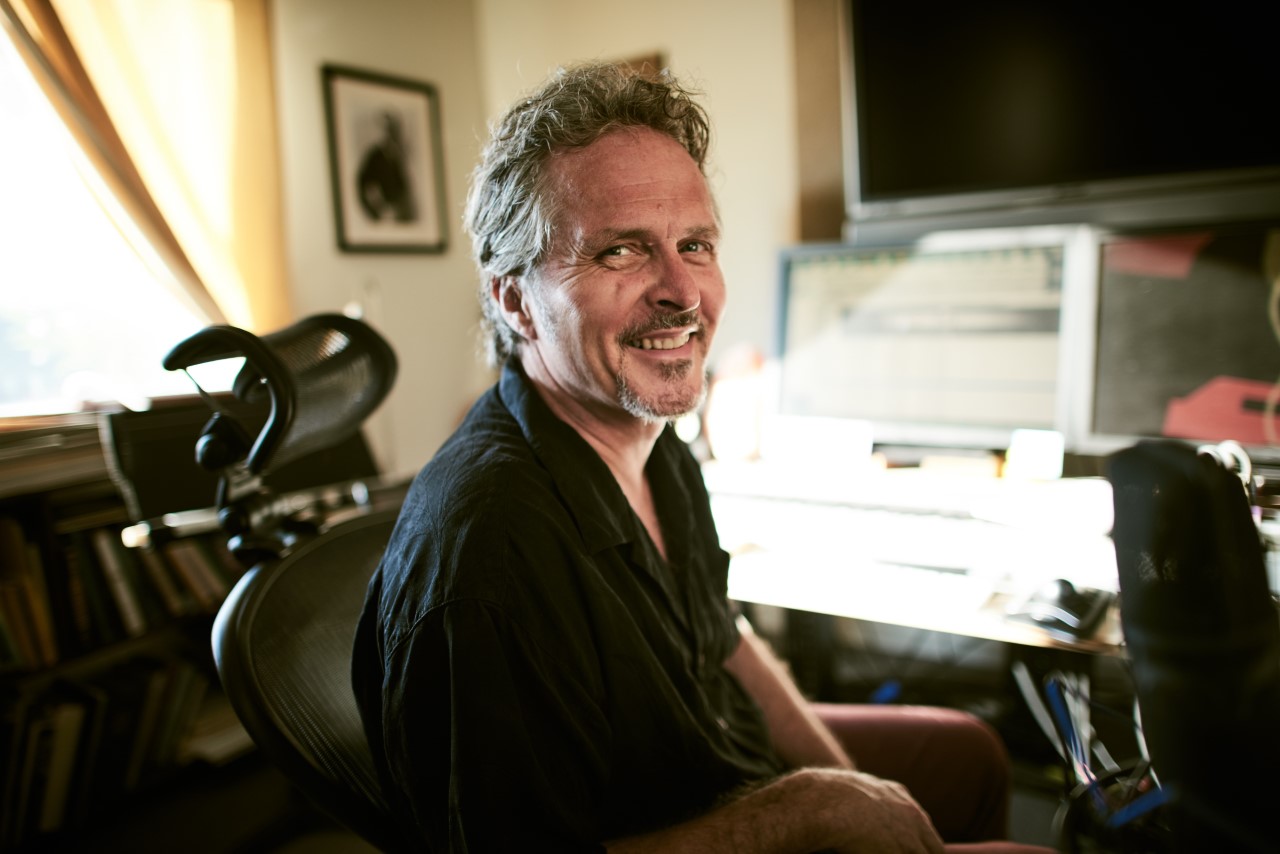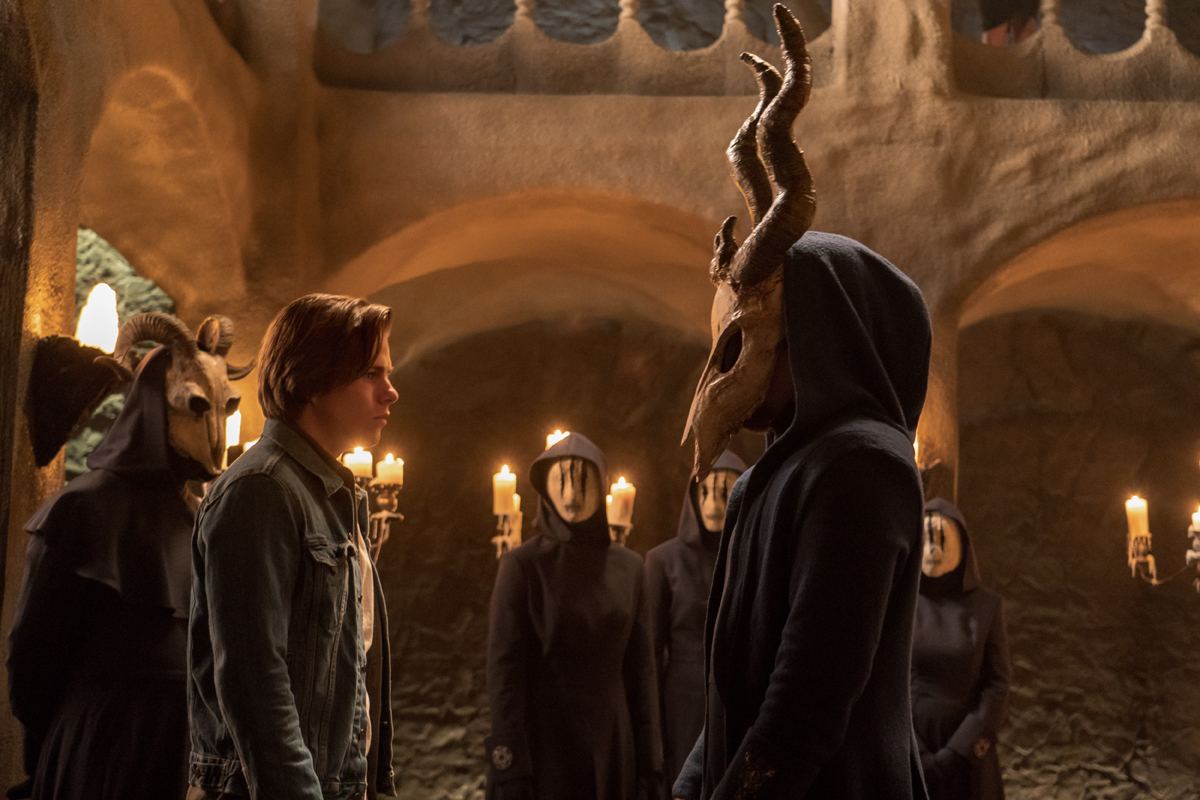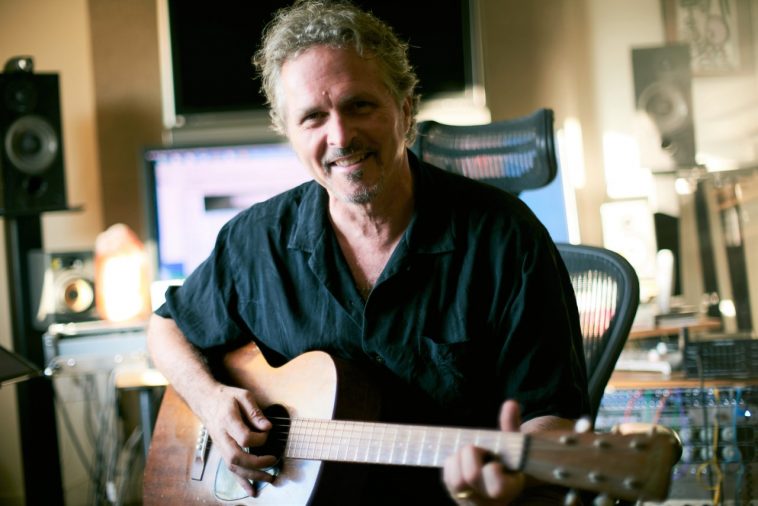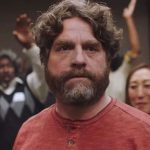Canada-born composer Patric Caird has been working in film and TV since the early nineties, plying his trade to a huge assortment of projects, across a variety of genres, be it animation, documentary film or TV series. Initially a jazz saxophone player, Caird has successfully parlayed his skills as a session musician and band member to a career as composer for hire, and he recently scored a hit with the well-received Netflix YA horror series The Order. We had the opportunity to chat to him recently, where he opened up about both the challenges and the highs and lows of working in show business.

You started out in jazz. How did you make the leap to film and TV scoring?
I was a saxophone player in Canada, but there wasn’t a whole lot of opportunity in that field. I took advantage of as much as I could and wound up studying with some really great players at a fine arts school. I did a lot of writing for bands that I was in and it occurred to me that improvising was writing in real time on your feet. I started to apply that first to cartoon music – I had a neighbour who was an animator whom I worked with – and from there it expanded into documentary scoring then narrative.
Looking at your IMDb page, it’s clear that you’ve jumped around many different genres. Do you find that kind of thing easy to do?
I really love it. It keeps it interesting and lets me stretch and learn a bunch of different things. Every time I take on a project I try to research what has happened [in that genre] before me and make up my own language. I didn’t really go to school to study – I studied the saxophone and composing for the film and TV privately – so I just made it all up as a went along. I found that going from, say, a holocaust documentary to a cartoon, I was learning things in both of those that I could then apply to each medium.
The horror stuff is always wonderful, and that’s what makes The Order such fun. It’s writ large and gets to take itself quite seriously and get away with that. Cartoon work is fun because it’s as crazy as I can make it.
The Order has proved to be a popular title on Netflix and has been commissioned for a second series. How do you become involved with this high-profile gig?
It ties in with my animation scoring career because I met the showrunner and show creator of The Order Dennis Heaton years ago on animation. We worked together on a bunch of different projects, including Ed, Edd n Eddy at a.k.a. Cartoon. Over the years we would conspire to work together and Dennis brought me on-board another Netflix show called Ghost Wars, which unfortunately only ran for one season. He then pitched the studio The Order which they bought and I went over to that.

Is that the usual career path for a composer? Getting work from those you’ve collaborated with previously?
Yeah, it’s very much a personal relationship business in that way. Very seldom do I get a call from a total stranger – which I love when I do, as they’ve heard my work and it’s always very flattering and fun to get involved with someone new – but most of it is people that I have already worked with or friends. It can be quite nepotistic when you boil it all down.
You’re pretty prolific. What’s the key to keeping busy in the industry?
If I really knew I’d probably sleep better at night (laughs). [The work] seems to come and go in waves. I’m originally from Vancouver and I had a pretty strong career there, but I wanted to move here to Los Angeles because it’s the centre of the entertainment industry and the weather is fantastic (laughs). I came to LA with some jobs – I was working on the TV spin-off of The Dead Zone amongst some others – but I was a new kid in a pretty big city and thousands of composers vying for jobs. The career ebbs and flows, so I’ve been through both healthy and fallow periods. Right now I seem to be enjoying some pretty steady work. Along with the Netflix stuff I’m also doing Hallmark movies which I really love working on. It’s fun going from the supernatural, big, dark and scary sound of The Order to the sweetest major triads I can possibly orchestrate. I love the diversity.
Who are your inspirations from the industry when it comes to scoring?
I really enjoy the classic composers like Jerry Goldsmith and Bernard Herrmann. More contemporary, someone like Dave Porter who did Breaking Bad is a really inspiring and inspired composer. Lately I’ve been watching a lot of European crime drama and there’s a series called Gomorrah from Italy. It’s scored by this group called Molecule and they do this industrial and edgy scoring which is so evocative and fits the show perfectly.
Given how you’ve navigated your own career, what advice do you have for any aspiring composers out there?
Keep writing. Just write all the time and experiment. I think that’s the most important thing. I know for me and most of my friends in the business, we can’t watch a movie without analysing the score. Ultimately I feel that music is the service to story, and you can’t read enough, watch too many films or go to enough art galleries to actually get sensitised enough to how to express emotion.
Someone was talking the other day about the best film music being the stuff that you don’t hear, but I disagreed with that. I think the greatest scores are the ones you don’t hear with your ears but with your heart instead. My job as a composer is to amplify the emotional landscape in a film or whatever visual medium. I’ll watch a corny show without any music and as soon as the music comes in, all of a sudden I’ll be sensitised to it. I can be quite a sap sometimes (laughs).






Leave a Comment